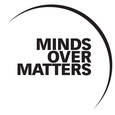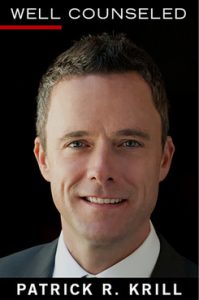It's Time to Talk About the Family's Role in the Mental Health of Legal Professionals
A broader view of helping lawyers and legal staff means recognizing that the struggle with depression, anxiety or substance abuse is likely to touch loved ones.
September 10, 2019 at 11:28 AM
6 minute read
 Image: Shutterstock.
Image: Shutterstock.
"You can choose your friends but you sho' can't choose your family, an' they're still kin to you no matter whether you acknowledge 'em or not, and it makes you look right silly when you don't."
― Harper Lee, "To Kill a Mockingbird"
 As the conversation around mental health in the legal profession has continued to grow and evolve, most of the focus has either been on the individuals who are struggling, or the organizations that employ them. Rightfully so, in many ways, but there is another centrally important stakeholder in the lives of legal professionals that we're not paying enough attention to: family.
As the conversation around mental health in the legal profession has continued to grow and evolve, most of the focus has either been on the individuals who are struggling, or the organizations that employ them. Rightfully so, in many ways, but there is another centrally important stakeholder in the lives of legal professionals that we're not paying enough attention to: family.
In 2019 the term "family" is more inclusive and far-reaching than ever before and can truly involve a wide array of close relationships that populate our personal orbits and lie nearest to the essence of our beings. Love them, hate them, both or somewhere in between, our families are foundational components of who we are, and their role in our emotional well-being is significant. As we strive to improve the mental health climate in the legal profession, it's time to bring the family's role into sharper focus.
Sometimes, family can be a primary source of a legal professional's mental health distress, fueling worry, anxiety, distraction, sleeplessness, increased substance use, agitation or depressed mood. This is true whether it is our relationship with a family member that is problematic, or whether they are having their own personal struggles that, in turn, are impacting our emotions, focus and health.
Think about it—if your relationship with, for example, your partner, spouse or child is strained, what happens to you at work? If you're lucky, you are truly gifted in the art of compartmentalization and nary a ripple on your placid demeanor or blip in your laser focus could be detected. If you're like most, your attention is spotty, mood irregular, and self-care neglected.
The same can be true even if it's not your relationship with a family member that is the problem, but rather their own personal struggles with addiction, depression, or other mental health problems that are spilling over, disrupting your life, and leaving you feeling powerless and frustrated. In fact, addiction specifically is frequently described as a "family disease" because of its direct impact on the loved ones of the addicted individual.
Not surprisingly, I often hear from lawyers and law firm staff that while they themselves aren't dealing with a mental health or substance use problem, they find education on the topics to be quite useful because of their situation at home and the impact a loved one's difficulties are having on them.
As such, legal employers with an enlightened view of how to best support their people will recognize that effectively addressing mental health in the legal profession means avoiding an overly narrow or exclusive focus on the 20% to 30% of their own workforce that is struggling.
Instead it will mean recognizing that, at some time or another, the struggle is likely to touch us all through our families. This more expansive and realistic view of how mental health is implicated in the workplace also makes the business case for well-being even more compelling.
The other reason why we've got to make families a more integral part of the discussion is the vitally important role they can play in helping a legal professional recover from a substance use or mental health problem. Despite the fact that many lawyers frequently spend more time working than with their families (which is part of the problem but a separate conversation), loved ones are typically in a better position to understand what's really going on with a lawyer's mental health, because they see them at their most vulnerable and unguarded, free from the professional veneer and cultivated image that may keep co-workers in the dark about their struggles.
 It should be no surprise, then, that when someone is admitted to treatment for a mental health or addiction problem, one of the most valuable and reliable sources of information that treatment providers and clinicians have is family members. Sometimes intentionally and sometimes not, patients themselves can make for poor historians of the journey that brought them to treatment, and an exclusive reliance on their narrative will often handicap a clinician's therapeutic efficacy.
It should be no surprise, then, that when someone is admitted to treatment for a mental health or addiction problem, one of the most valuable and reliable sources of information that treatment providers and clinicians have is family members. Sometimes intentionally and sometimes not, patients themselves can make for poor historians of the journey that brought them to treatment, and an exclusive reliance on their narrative will often handicap a clinician's therapeutic efficacy.
In fact, when I was working with lawyer patients in treatment, one of very first things I would do is call their spouse, partner or other family members, so that I could obtain as close to a 360-degree view of the situation as possible and thereby make informed decisions about patients' treatment plans and needs. (As an aside, while hearing from the employer was also very important, it was almost always less so than candid conversations with the patient's family.)
Beyond being a useful source of collateral information and situational context, family members are uniquely situated to offer the type of support, comfort and reassurance that legal employers are simply unable to match from an emotional and intimacy standpoint. Keeping that in mind, law firms and other legal employers can better support the mental health of their people by exploring ways to leverage the emotional resources that family members can offer and the unique perspective into the problem they might have.
Clearly—and as most lawyers reading this are probably thinking—privacy concerns and boundary issues need to be thoughtfully navigated as legal employers might seek to better involve family members in the firm's mental health and well-being efforts.
These challenges are fully surmountable, however, and it is a mistake to take a binary approach to mental health in the workplace that arbitrarily segments lawyers and law firm staff into unintegrated halves, with a personal life on one side of the fence and professional life on the other.
Or, to paraphrase Harper Lee, it makes us look "right silly" when we don't acknowledge how essential the role of family can be.
Read more – Minds Over Matters: An Examination of Mental Health in the Legal Profession
Patrick Krill is the founder of Krill Strategies, a behavioral health consulting firm focused exclusively on the legal industry. Go to www.prkrill.com for more information. He is also a member of Law.com's Minds Over Matters advisory board.
This content has been archived. It is available through our partners, LexisNexis® and Bloomberg Law.
To view this content, please continue to their sites.
Not a Lexis Subscriber?
Subscribe Now
Not a Bloomberg Law Subscriber?
Subscribe Now
NOT FOR REPRINT
© 2025 ALM Global, LLC, All Rights Reserved. Request academic re-use from www.copyright.com. All other uses, submit a request to [email protected]. For more information visit Asset & Logo Licensing.
You Might Like
View All
Empowering Your Lawyers: A Marketing Team’s Guide to Achieving Goals and Fostering Lawyer Satisfaction
9 minute read
Change Is Coming in the Trump Era. For Big Law, Change Is Already Here
6 minute read

'If the Job Is Better, You Get Better': Chief District Judge Discusses Overcoming Negative Perceptions During Q&A
Trending Stories
- 1Uber Files RICO Suit Against Plaintiff-Side Firms Alleging Fraudulent Injury Claims
- 2The Law Firm Disrupted: Scrutinizing the Elephant More Than the Mouse
- 3Inherent Diminished Value Damages Unavailable to 3rd-Party Claimants, Court Says
- 4Pa. Defense Firm Sued by Client Over Ex-Eagles Player's $43.5M Med Mal Win
- 5Losses Mount at Morris Manning, but Departing Ex-Chair Stays Bullish About His Old Firm's Future
Who Got The Work
J. Brugh Lower of Gibbons has entered an appearance for industrial equipment supplier Devco Corporation in a pending trademark infringement lawsuit. The suit, accusing the defendant of selling knock-off Graco products, was filed Dec. 18 in New Jersey District Court by Rivkin Radler on behalf of Graco Inc. and Graco Minnesota. The case, assigned to U.S. District Judge Zahid N. Quraishi, is 3:24-cv-11294, Graco Inc. et al v. Devco Corporation.
Who Got The Work
Rebecca Maller-Stein and Kent A. Yalowitz of Arnold & Porter Kaye Scholer have entered their appearances for Hanaco Venture Capital and its executives, Lior Prosor and David Frankel, in a pending securities lawsuit. The action, filed on Dec. 24 in New York Southern District Court by Zell, Aron & Co. on behalf of Goldeneye Advisors, accuses the defendants of negligently and fraudulently managing the plaintiff's $1 million investment. The case, assigned to U.S. District Judge Vernon S. Broderick, is 1:24-cv-09918, Goldeneye Advisors, LLC v. Hanaco Venture Capital, Ltd. et al.
Who Got The Work
Attorneys from A&O Shearman has stepped in as defense counsel for Toronto-Dominion Bank and other defendants in a pending securities class action. The suit, filed Dec. 11 in New York Southern District Court by Bleichmar Fonti & Auld, accuses the defendants of concealing the bank's 'pervasive' deficiencies in regards to its compliance with the Bank Secrecy Act and the quality of its anti-money laundering controls. The case, assigned to U.S. District Judge Arun Subramanian, is 1:24-cv-09445, Gonzalez v. The Toronto-Dominion Bank et al.
Who Got The Work
Crown Castle International, a Pennsylvania company providing shared communications infrastructure, has turned to Luke D. Wolf of Gordon Rees Scully Mansukhani to fend off a pending breach-of-contract lawsuit. The court action, filed Nov. 25 in Michigan Eastern District Court by Hooper Hathaway PC on behalf of The Town Residences LLC, accuses Crown Castle of failing to transfer approximately $30,000 in utility payments from T-Mobile in breach of a roof-top lease and assignment agreement. The case, assigned to U.S. District Judge Susan K. Declercq, is 2:24-cv-13131, The Town Residences LLC v. T-Mobile US, Inc. et al.
Who Got The Work
Wilfred P. Coronato and Daniel M. Schwartz of McCarter & English have stepped in as defense counsel to Electrolux Home Products Inc. in a pending product liability lawsuit. The court action, filed Nov. 26 in New York Eastern District Court by Poulos Lopiccolo PC and Nagel Rice LLP on behalf of David Stern, alleges that the defendant's refrigerators’ drawers and shelving repeatedly break and fall apart within months after purchase. The case, assigned to U.S. District Judge Joan M. Azrack, is 2:24-cv-08204, Stern v. Electrolux Home Products, Inc.
Featured Firms
Law Offices of Gary Martin Hays & Associates, P.C.
(470) 294-1674
Law Offices of Mark E. Salomone
(857) 444-6468
Smith & Hassler
(713) 739-1250








